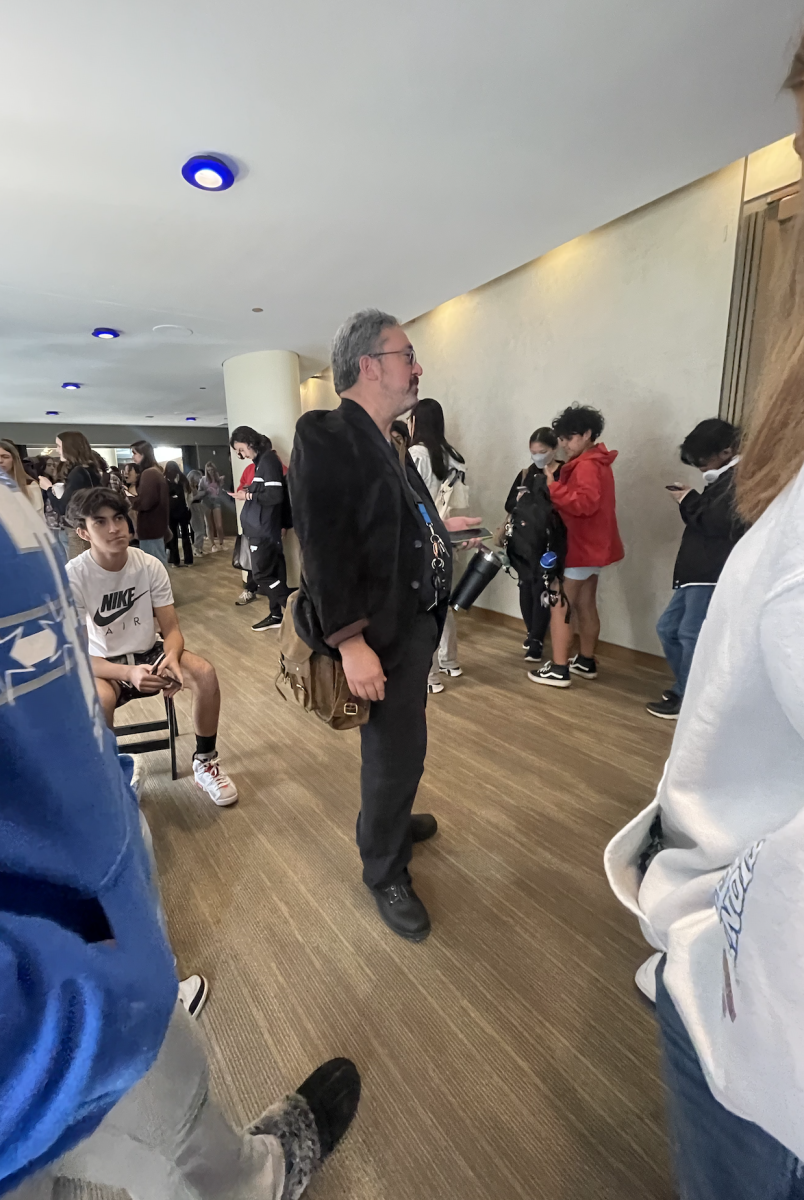
Love is in the air this February and Valentine’s Day is already over, but that doesn’t mean love is. Here at Taft, it’s common to see couples walking in the hallway living out their teenage love, even if it is just a talking stage. But do these couples trust each other?
We went around testing the loyalty between couples at Taft to see if they check each other’s phones as a form of trust, and to what extent conversations with other people outside of the relationship are accepted. Valentine’s Day brings plenty of love, but it can also bring some shady business…
As a way to evaluate the trustworthiness of couples, we conducted an experiment consisting of getting further intel about partners’ relationships at Taft and how they deal with trust. Things such as how long they’ve been together and the label they put on their relationship influence trust and security.
Would you swap phones with your significant other?
“Yes I would,” said Jordana Shamah and Angel Jiminez, both seniors at Taft.
“I feel like it builds and loses trust,” said Jiminez.
When understanding the certain boundaries that come with trust in relationships, it’s important to also understand how long the relationship has been going on.
How long would it take for you to share passwords with your significant other?
“Like five months,” said Roxan Cruz, senior at Taft.
“Like four-five months,” stated Cruz’s significant other, Carter Booth senior at Taft, following up with her answer.
Partners need to understand each other’s perspective and know when to instill plans of action that ensure both parties are exactly where they want to be at any point in the relationship.
Mutual agreement is a key concept when coming to terms with decisions that incorporate two individuals. Without this key factor, problems may arise that lead to petty arguments and dysfunction in relationships that can only harm the relationship in the long run.
Boundaries are another key factor for several reasons, they contribute to the overall health and well-being of individuals and the relationship itself. Setting and respecting boundaries fosters open communication and encourages individuals to share their needs, desires, and limits creating an environment where both partners feel heard and understood.
This leads us to the next question: Is it acceptable to use your partner’s phone without their permission for investigating purposes especially when they are acting shady or suspicious?
“No, it’s not right because things happen and it’s an invasion of privacy,” said Mathew Mitchell, a senior at Taft.
“If you’re behaving suspiciously I’m going to check why I have this feeling. I’m not just going to stand around and look stupid,” stated Isabella Romero opposing her partner, Mitchell’s statement.
To conclude, it is a fundamental truth in relationships that couples will not always see eye to eye. The diversity in perspective, experiences, and simply people’s individuality could create a barrier that ensures disagreement is inevitable. However, the key lies not in the presence of differences but in the willingness to work through them.
While full agreement at times may be elusive, the importance of touching base with your partner can’t be overstated. Establishing open communication, setting and respecting boundaries, and fostering mutual understanding are all crucial tools for navigating a healthy and stable long-term relationship.



























